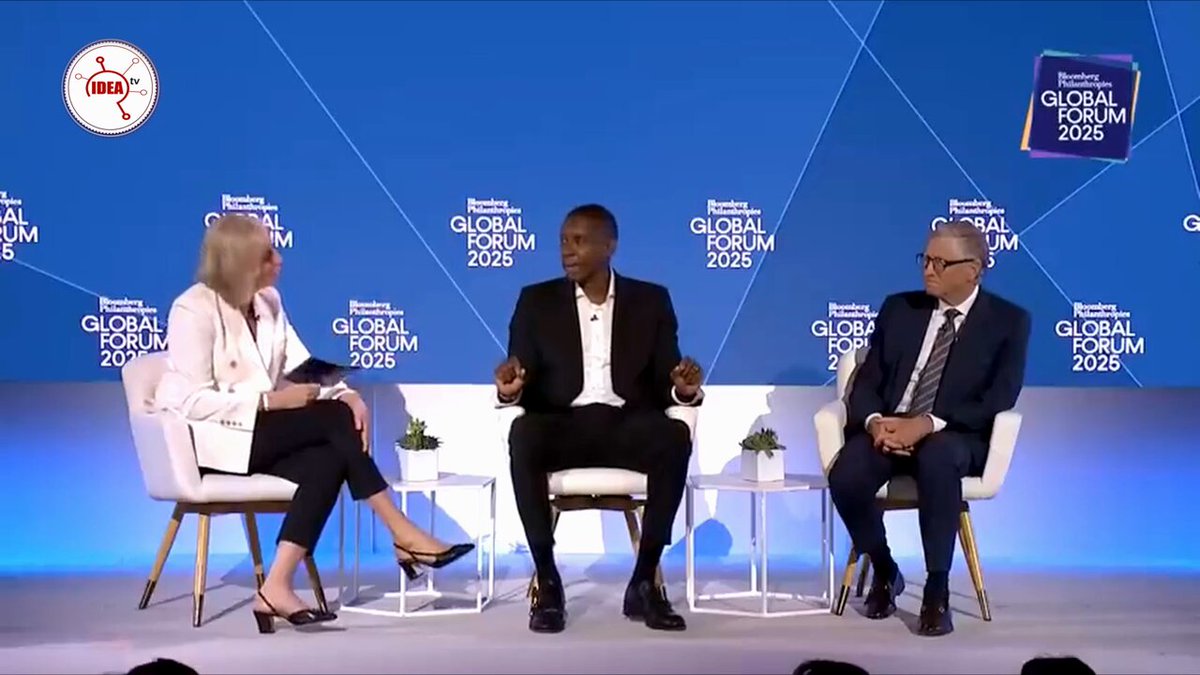In an engaging conversation on Africa’s development, Bill Gates, co-chair of the Bill & Melinda Gates Foundation, and Masai Ujiri, President of the Toronto Raptors and UN SDG Advocate, explored how health, innovation, and cross-border partnerships can accelerate growth across Africa. Their dialogue revealed a shared conviction that collaboration, not isolation, will determine Africa’s future.
“Over the last 25 years, global aid has saved tens of millions of lives,” Gates began. “But now, for the first time in decades, we’re going backward.” He warned that declining foreign aid and rising debt in key African economies threaten to undo decades of health progress. “More children will die this year than last year, a reversal we haven’t seen in 25 years,” he cautioned.
Gates explained that government aid remains vital. “Philanthropy can’t replace public funding,” he said. “Even if every billionaire gave more, it would still only cover about 5% of what’s being cut.” His message was clear: development requires both generosity and systemic support.
While Asia has largely transitioned from aid dependency to self-reliance, Gates emphasized that Sub-Saharan Africa remains at a crossroads. “The region’s greatest asset is its young population,” he said, “but without strong health systems, that demographic advantage could turn into a liability.”
He pointed to Africa’s formula for progress as generosity and innovation, arguing that breakthroughs in health and nutrition will determine whether Africa’s youth become a driving force or a lost opportunity.
Masai Ujiri, known for blending sports leadership with social impact, agreed. “Bill’s work is inspiring,” he said. “But Africa must take responsibility for its future. Our biggest jewel is our youth. We need to invest in health, mental wellness, and infrastructure, and we Africans must lead that charge ourselves.”
Ujiri, who has built sports and youth empowerment projects across Africa, underscored that the continent’s transformation cannot depend solely on external aid. “If aid is being cut, it should’ve been gradual,” he said. “Still, we can’t just complain. We have to build.”
He noted that sports, often seen merely as entertainment, can be a powerful economic and social engine. “Sports brings people together,” he said with a smile. “If Nigeria were playing the U.S. right now, nobody would be listening to us, everyone would be watching the game! That’s the power of sports.”
Beyond the laughter, Ujiri’s point was serious. “We must treat sports as business, as infrastructure, as wellness. It drives unity, builds mental health, and creates jobs,” he said. He highlighted Rwanda’s Kigali Arena and surrounding sports ecosystem, a hub that integrates hotels, restaurants, gyms, and retail, as a model that can be replicated in cities like Lagos, Nairobi, and Johannesburg.
Gates, in turn, praised Rwanda for its progress. “Rwanda is small, but it’s producing some of Africa’s best examples in stability, health, and education,” he said. “If Kenya can manage its debt and Nigeria can tackle its political and health challenges, the region’s potential is limitless.”
Both leaders agreed that Nigeria remains the linchpin for Africa’s development. Gates called it “the most critical country for Sub-Saharan Africa’s future,” citing alarmingly low vaccination rates in some regions, below 30%, compared to over 80% in countries like Tanzania and Rwanda.
Ujiri added that Africa’s progress hinges on strong partnerships between governments, private investors, and local communities. “We can’t keep saying leaders aren’t doing enough,” he said. “We need to collaborate with governments that are open-minded and visionary. Young Africans in the diaspora are returning with skills and capital, and we must give them room to build.”
For Gates, the equation is simple: healthy populations equal productive nations. “When people are healthy, they learn better, work better, and build stronger economies,” he said. “That’s the foundation of transformation.”
Yet he warned that global priorities are shifting in the wrong direction. “The world is spending more on military buildup and less on fighting poverty and disease,” Gates said. “The commitment to dedicate just 1% of budgets to the world’s poorest should not be negotiable.”
Ujiri closed the conversation with a call for bold African leadership. “We have the talent, the energy, the youth,” he said. “Now we must lead with vision. It’s time to build our own future and make Africa a global force.”
Their conversation captured a powerful truth: Africa’s next chapter will be written not just in boardrooms or aid meetings, but on basketball courts, in classrooms, and across communities where health, innovation, and leadership intersect.
Cross-border partnerships, youth empowerment, and health-driven growth are not separate agendas. They are the blueprint for Africa’s renewal. And as Gates and Ujiri make clear, the time to act is now.










